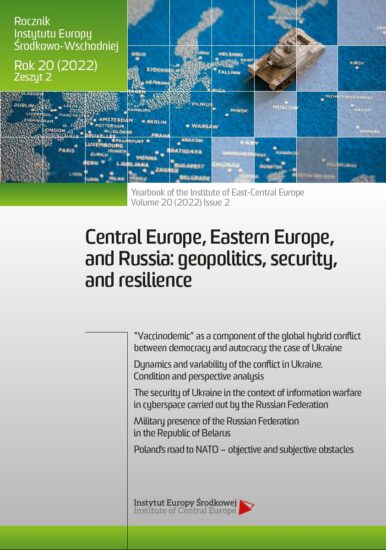Criminal offences as an element
of anti-state activities in the eastern
lands of the Second Polish Republic
from 1921-1925
Criminal offences as an element
of anti-state activities in the eastern
lands of the Second Polish Republic
from 1921-1925
Author(s): Rafał RoguskiSubject(s): History, Social Sciences, Sociology, Social history, Recent History (1900 till today), Criminology
Published by: Instytut Europy Środkowej
Keywords: common crime; border protection; Second Polish Republic; Borderlands
Summary/Abstract: : The purpose of this research is to illustrate the phenomenon ofcommon crime in the eastern areas of Poland from 1921-1925. In the text,the author gives examples of this and its cause and effect on the functioning of the young Polish state. The timeline of the study covers the periodfrom the signing of the Riga Treaty ending the Polish-Soviet War in 1921, to1925 when the Bolsheviks temporarily gave up their aggressive attempts tospread communism in Europe. The author of the study focused on the mostimportant type of crimes characteristic of the borderland such as robberyand smuggling, using the literature on the subject, source publications, andarchival resources, mainly from the Central Military Archives, the Border GuardArchives in Szczecin, and Ukrainian archives in Lviv and Tarnopol. The researchaims to show the characteristic types of common crimes, their connectionwith anti-Polish activities on the part of the USSR and Lithuania, and the intertwining of political crime with criminal offences. In the work, the author usesthe critical analysis of sources, literary analysis, and the comparative method.
Journal: Rocznik Instytutu Europy Środkowo-Wschodniej
- Issue Year: 20/2022
- Issue No: 2
- Page Range: 233-253
- Page Count: 21
- Language: English

